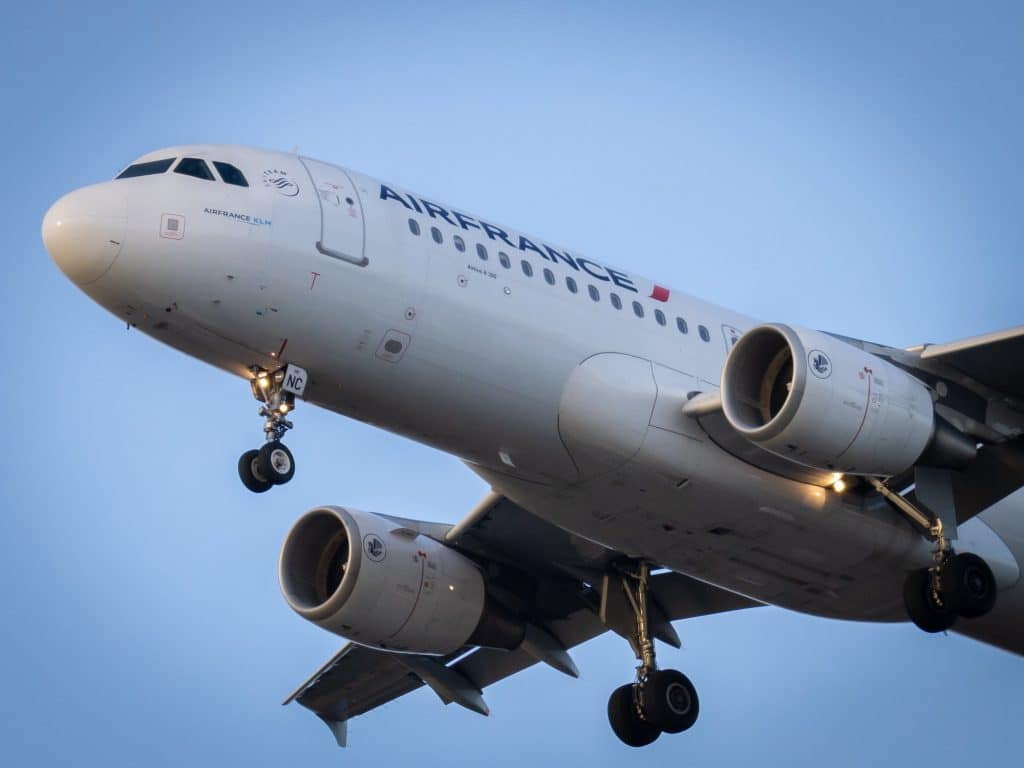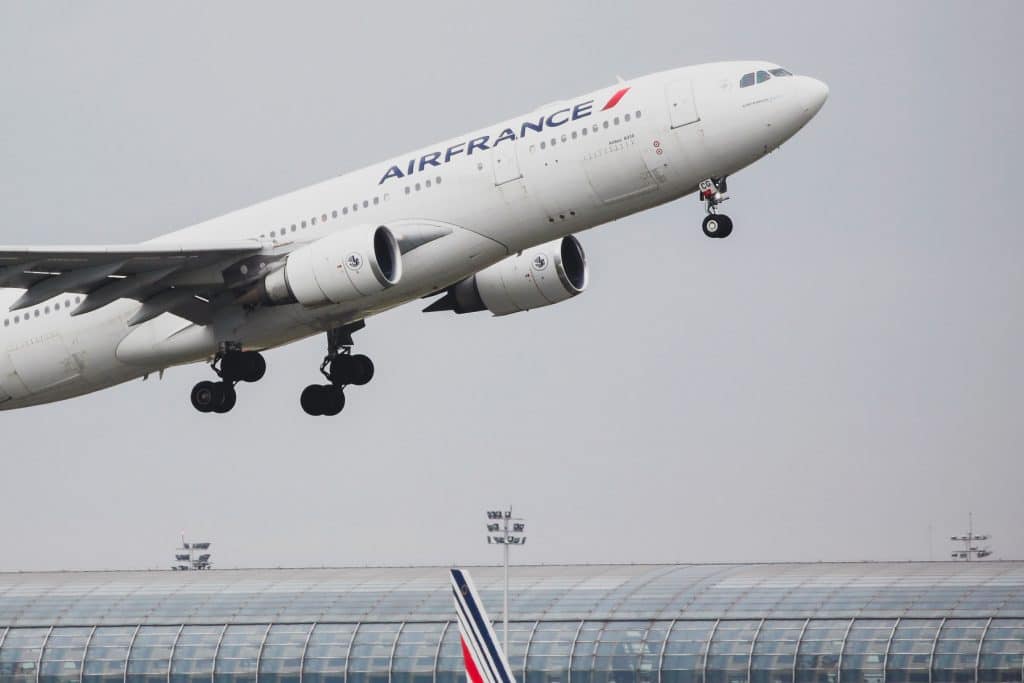Valentino will offset its travel emissions through a partnership with Air France and KLM to increase sustainable aviation fuel.
Italian luxury label Valentino is keeping good on its promise of increasing sustainability metrics with a new partnership with Air France and KLM.
The partnership will see Valentino estimate its annual travel-related CO2 emissions and fuel use and offset those with contributions to the Sustainable Aviation Fuel program launched by Air France and its subsidiary, KLM.
“We are pleased to partner with Air France and KLM on the SAF programme, whose green transition goals we fully share and support,” Jacopo Venturini, CEO of Valentino, said in a statement.
“As a brand, we are proud to add our voice to promote positive change. We are convinced that supporting the research and development of alternative solutions to reduce CO2 emissions is fundamental to continue supporting sustainable fuel production.”
Air France’s SAF program
Air France’s SAF program directs funds from corporate clients like Valentino toward the use of fuels that come from waste oils produced by a number of industries including cooking oils and forest residues such as biomass.
The airlines say this is the future for sustainable air travel. Currently, the aviation industry accounts for more than two percent of all greenhouse gas emissions.

“The partnership represents a new important step in the green transition of Maison Valentino, championing conscious-driven transport and reflecting the company’s commitment towards the safeguard of the environment and the implementation of its new responsible business model,” Valentino said.
“At its core lies a strong, solidly built company culture, aware that the path to sustainability is the catalyst (and fuel) for a transition that not only brings about positive change for the ecosystem, but also benefits communities on a global scale.”
Stefan Vanovermeir, Managing Director of Air France and KLM East Mediterranean, says the production of renewable fuels for aviation is “key to achieving the CO2 reduction objectives” in the aviation sector.
“Important companies such as Maison Valentino, which totally understand our commitment towards the environment and share our same philosophy, make sure that the road ahead is less steep,” Vanovermeir said. “Thanks to this agreement we will be able to stimulate a more rapid availability of fuel for sustainable aviation on a wide scale, with a more competitive price compared to fossil fuels.”
Reducing aviation emissions
Air France and KLM say the goal is to reduce its total CO2 emissions per passenger by 50 percent compared to 2005 numbers. The airlines are aiming to be net-zero by 2050.
According to Air France, it already replaces between 0.5 percent and one percent of all kerosene with sustainable jet fuel. It’s aiming for five percent by 2030 and 63 percent by 2050.
Air France and KLM have been exploring sustainable fuel alternatives for years. In 2011, both airlines were among the first in the world to operate commercial flights using sustainable fuels.

In January, Air France and KLM introduced sustainable jet fuel surcharges, ranging between €1 to €12 depending on flight distance and seating class.
Last September, Air France debuted its first Airbus A220-300 aimed specifically at mid and short haul flights. The lighter-weight aircraft is more fuel-efficient than heavier planes, reducing CO2 emissions by 20 percent and a 34 percent drop in acoustic footprint.
“At a time when climate awareness is at the heart of the strategy of many companies, the SAF corporate program offers corporate customers of Air France and KLM the opportunity to take an active part in reducing CO2 emissions,” Valentino says, noting that it supports the use of alternative fuels and moves “in synergy with the group on a path towards the future pushed by social and environmental responsibility – the perpetual motor of the brand.”
Compared to traditional fuels, SAF can reduce emissions by up to 75 percent. Current costs and regulations make it prohibitive; SAF is about four to eight times the price of conventional fuels and U.S. regulations currently only allow a maximum of 50 percent SAF per flight—a regulation the industry is hoping to see change.
In France, all airlines refueling in the country are required to use at least one percent SAF. That will increase to two percent by 2025 and five percent by 2030.
Valentino sustainability
Valentino’s pledge aligns with its history of sustainability efforts including a zero-deforestation pledge launched in 2015 and its code of ethics that includes animal welfare and a commitment to toxin-free work environments throughout its supply chain.
Earlier this year the label launched Open for a Change, its first sustainable unisex sneakers made from biodegradable and sustainable materials.

“With Valentino Garavani Open for a Change, our first conscious-driven product, we reinforce our brand commitment toward more sustainable business practices,” chief executive officer Venturini, told WWD.
In January, 57-year-old supermodel Kristen McMenamy opened Valentino’s Fall22 show, in a move the label said was part of its “rethinking the rituals and processes of couture” and “promoting an idea of beauty that is not absolute.”
“At Valentino we are building on our history and legacy with a new attitude and a new culture based on a couture culture which I believe is absolutely vital to our next chapter,” Venturini said. “A culture of values is what we are injecting in Valentino. I am committed to this mission, I believe this is going to be key for the future.”


